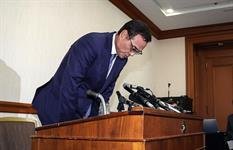July 21, 2025 | Resonates
It’s been a couple of weeks since I attended Content Rising, an incredible one-day event at Kew Wakehurst. For those not aware, this was a day of stories, experiences and creativity aimed at addressing how we, as content professionals, address the climate crisis.
Unfortunately there isn’t a magic answer, and that’s kind of the point – the day was more about bringing many like-minded people together to reflect on where we’re at, and what we could be doing better. More than anything, for many of us it was a chance to recharge our batteries, share ideas, and remind ourselves why we’ve chosen to work in climate and environmental fields.
A brilliant programme
I won’t try and recap the entire programme, but it was notable for its diverse range of voices. Over two panel discussions and four speakers, delegates heard from six women and four men, with half of all speakers representing global majority groups.
Highlights included a discussion of young people’s attitudes to creating and consuming environmental content, where conservationist and TV host Chantelle Lindsay chaired Lira Valencia and Vanessa Terschluse in a discussion around what young people want to hear and say in climate discussions.
I enjoyed hearing author Jon Alexander explain his theory about how we’ve moved from an age where people were subjects, through one where we were consumers, and now into one where we’re becoming citizens. It sounds trite when boiled down so succinctly, but the energising and optimistic message was that with this, people gained the agency to demand and drive change.
As if by magic (or good scheduling), Rubber Republic’s Matt Goulding was up next to show how this works in practice. He offered the story of Ambition Lawrence Weston, a residents’ group in Bristol that has driven social and cultural progress on their housing estate, culminating in the installation of a wind turbine in whose profits they share.
Breakout
By about lunchtime, though, I’d started to notice something unusual. Out of the 200 or so delegates, the overwhelming majority – perhaps 80% – were women. I was pondering this during my breakout session, hosted by the fantastic and uplifting Gail Muller, when somebody asked if I was the token man. I looked around; I was the only one in a group of 25.
Later, the second panel group provided a possible explanation for this unusual balance. In discussions chaired by journalist Marisol Grandon, with Afreen Saulat and Anthony Pearce, the point was made that women and indigenous people are the world’s caregivers. Women provide the majority of the world’s personal and child care, but also both groups are disproportionately represented in the intertwined fights for social and climate justice.
I’m still reflecting on this. Is caring a predominantly feminine trait? If so, what does that say about men? And if other groups are far more motivated to care, why do white men still dominate the leadership of green and clean tech organisations? I can guess at the answers, but I’m not sure I like them.
I came away refreshed by the diversity of views, speakers, and my fellow delegates. And by something else I noticed during Gail Muller’s breakout. Walking through woodland, some of us looked, while others stopped and listened. Some ran their fingers through fern and grasses, and one person even took off her shoes to feel the ground.
Everyone experiences nature differently. And what a privilege that is.
















